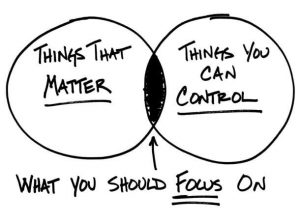 You can only control what belongs to you… Your thoughts, your feelings, your emotions don’t belong to you. Your actions, your attitude, what you actually heed, what you say… they do belong to you.
You can only control what belongs to you… Your thoughts, your feelings, your emotions don’t belong to you. Your actions, your attitude, what you actually heed, what you say… they do belong to you.
They are interestingly difficult to see… they are hidden from your view, overcrowded by noise.
We call these here: invisible dynamics. They are tiny machines, their behavior is predictable, manageable, and their effect on your life are detrimental.
 There is a lot of confusion in the world what you can control… so here is a few “new” wrinkle there: you cannot control the voices in your head, you cannot control what you are thinking, and you cannot control your feelings and your emotions, no matter who says that you can. You cannot make yourself like or love what you dislike. You cannot feel gratitude and appreciation. You cannot make yourself love but you can be loving. You cannot make yourself care, but you can be caring. But you definitely control what you do, what you say, and your attitude, to a certain degree.
There is a lot of confusion in the world what you can control… so here is a few “new” wrinkle there: you cannot control the voices in your head, you cannot control what you are thinking, and you cannot control your feelings and your emotions, no matter who says that you can. You cannot make yourself like or love what you dislike. You cannot feel gratitude and appreciation. You cannot make yourself love but you can be loving. You cannot make yourself care, but you can be caring. But you definitely control what you do, what you say, and your attitude, to a certain degree.
My courses don’t ask you to change your beliefs… you cannot. My courses don’t ask you to change your thoughts… you cannot. My courses ask you to go through exercises that can change your beliefs, and your thoughts.
We do this through looking at your life, what happened in your life, through invisible dynamics that allow us to see things not visible to the naked eyes.
One of the invisible dynamics that I haven’t much spoken about, thus far, is attraction.
Why? It is a dicey topic, given what the law of attraction, manifestation people teach.
They lie, convincingly, and most people want to believe that they can manipulate their lives through what they learn there.
Not true.
So this may be an argumentative piece, this article… even if it is not me who is arguing.
You’ll argue if in any way you have sold your soul to those people… or won’t even argue, if you can’t even hear what I am saying.
It is rare that someone can hear both sides of an argument, equally. It requires the capacity of allowing… and that is even rarer than courage.
So I know I am speaking into a resistant echo…
So let’s start with that: the echo that you provide.
If we consider the echo a backdrop: a large piece of painted fabric in a photo studio: the painting on the fabric will give the context for the picture… and will also give the echo. It will either support or argue with what someone coming to that picture will say. Because the painted fabric will only be willing to allow what is consistent with it.
 What is a backdrop?
What is a backdrop?
A backdrop is a mostly fake, manufactured context that you are unaware of: it seems to belong to what is in front of it, and it gives meaning to it.
 In my interpretation, a backdrop to a conversation contains everything you have ever said yes to, you have said no to, you have resisted. It changes from person to person. Its main components are your self-image, the hidden and the overt… what you think is true about you. What you fear is true about you. What you are afraid that “they” will find out about you.
In my interpretation, a backdrop to a conversation contains everything you have ever said yes to, you have said no to, you have resisted. It changes from person to person. Its main components are your self-image, the hidden and the overt… what you think is true about you. What you fear is true about you. What you are afraid that “they” will find out about you.
This is why students show up with an disproportionately strong feeling to my calls: I can feel the background dominating them.
Every conversation has a backdrop for you, undistinguished. You are somewhat present to your self-talk, your soliloquy, your inner rumblings throughout the day, and the inner noise gets louder when you need to “deal” with other people, clients, bosses, family.
Your backdrop in action.
Anything and everything that happens happens in front of that backdrop, coloring it, distorting it, filtering it, and the backdrop makes it a story. A particular story… typical for you. A high drama. A source of emotions, sometimes stormy, violent, and very familiar.
The same thing happening in front of a blank canvas would not be a story, or would be a really simple story: the story a freshly arrived Martian would see… a so what?
OK, just one more qualifying statement: the backdrop we are talking about here is the default backdrop.
We can look at the backdrop from three different angles:
1. through your own eyes: and that is the dramatic angle: everything is happening to you, everything is about you, everything is agreeing or disagreeing with you, blah blah blah. If you look, this is what you call your “personal reality”, ineffective, unhappy, never going anywhere worth going
2. sideways: the sideways view shows what a movie sans the dramatic leading music looks like: no drama, even if dramatic things are happening. Just stuff. Killing. Or rape. Or a child throwing the television against the floor. So what? The drama would be in the backdrop. And movies would be boring without the music suggesting the backdrop.
3. the other person: they are saying whatever they are saying, but the listening, the reflection from your backdrop doesn’t allow them to hear themselves: their own backdrop and your backdrop entangle… and make what they say garbled.
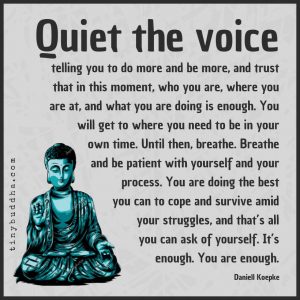 It is not fun talking to you. You don’t allow the other person to hear themselves.
It is not fun talking to you. You don’t allow the other person to hear themselves.
Who cares, you say, but you should. Because they will return “the favor”: they will not allow you to hear yourself either.
In the work we do in my programs, especially the Playground where the most important work can get done in the Partner Calls, unless you hear yourself, you won’t get clear.
The word “clear” is borrowed from Dianetics… where people are trained in one thing: to be a high fidelity echo.
In the conversation, auditing they call it in Dianetics, the person who wants to get clear so their future can be different from their past, the client, goes over incidents in his life and in the echo that lets them hear themselves, start to see the drama they put in the incident, and own it.
Werner Erhard copied the process without the training of the “auditor”.
In the Landmark Education Advanced Course, there is a segment where the participants are paired up and asked to share a story of hurt or slight, until it becomes clear that it’s a story.
But the listener is listening while thinking about the time, about their own story, about the size of the nose of the other person, about their accent, about their story… meaning: they are not a blank canvas, and the speaker cannot hear themselves, cannot get clear.
In the Playground I made the same mistake. And yesterday, when I specifically listened to hear the echo, I could track, moment to moment, what must be in the backdrop from how the speaker could or could not get clarity.
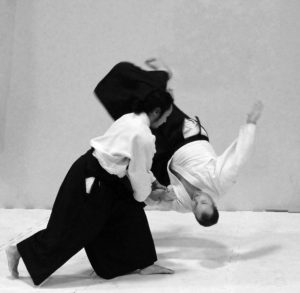 It was amazing to see that the echo and the speaking are in a perfect dance…
It was amazing to see that the echo and the speaking are in a perfect dance…
Everyone suffers from the noisy mind, the inner voices, the incessant chatter in their head. But no one is considering what that inner chatter does to their family, friends, teachers…
If and when you get conscious of your effect on the conversations you have, you’ll suddenly want to learn to let the voices do what the voices do, and yet be there for the other person’s message: to become a less convoluted, less fixed backdrop distorting everything that comes near it.
And if and when your partner can do the same, you, slowly, and gradually, will start to see clearing away the drama, and start to experience more joy than before. More calm, more peace, more productivity… And you’ll notice that you as an echo provider become better… must be so because the other person is getting clear faster.
OK, let’s look at another effect of your backdrop. The inner chatter… This is where the “attraction” type of phenomenon happens.
You will get things “happen to you” that match your backdrop. Never the good stuff, like the attraction people teach… only the bad stuff.
If you look, you’ll see that you yourself look at the world, at yourself, through a frame that has a name.
If you wanted me to demonstrate, I would take a peace of typing paper and cut out a rectangular hole in it. That is the frame. And it has a name… something and its seeming opposite.
Mine was smart/stupid, but I have also noticed that I have other frames just as loud. This one I can still track whenever I look at my performance winner/loser. It’s like a binary switch: it judges everything by the criteria given by the name of the frame.
You have multiple frames too. The noise comes from them arguing.
And no one wins in that argument. You’ll not have the freedom to be the “better” pole of that stick… interestingly you’ll do everything to be the “worse” pole…
One student has “nothing/significant” as one of his dominant frames. He makes sure, unwittingly, to render himself nothing in every situation, even if his voice is dripping with self-significance, his posturing, his utterances.
Another student has “appreciated/devalued” as his dominant frame. Of course he makes sure, unwittingly, to be devalued… The world will obey his unspoken demand to treat him that way.
When we go into the incidents in their lives… we can find the originating incident: in fact a string of incidents. They are repeating.
One could say there is a lesson there that they need to learn and they can’t see it.
In the Playground we say: once you can see that the drama of the incident, the words about you, were added by you, and they never actually happened in reality.
This is our process to getting to clear. In the Partner Calls. Looking through as many invisible dynamics as we can get to in a year. 52 weeks, 52 partner calls.
From my personal experience: realizing that I create my life unwittingly, is not a pleasant experience. One would expect you to celebrate, but the dark wolf dares to differ.
Your soul, the part of you that wants you to become all you can become, is smiling. But the ego, the Dark Wolf is frowning, growling, and scaring the bejesus out of you.
Why would the Dark Wolf be so reactivated? Because once you see what you are doing, once you see how you create again and again the same drama you created as a child, you see that you don’t have to.
You can do something else. You can do something more useful with your life. You can C-H-A-N-G-E.
But the Dark Wolf doesn’t want you to change.
Is the Dark Wolf bad? No, it is only true to its nature. Is the soul good? No, it is only true to its nature.
If and when you get to “clear” your soul and your ego can, could combine into a unit, I call tumbleweed…
Will they? It depends on your level of integrity. And it depends on your level of willingness to let go of the excuses why you can’t.
- The Dark Wolf tempts you with transient pleasures… excitement, titillation, “winning”…
- The soul has only a future to offer you… no excitement in the moment.
It is the Dark Wolf that wins nearly every time… unless you have started to build a track record of tiny wins for the soul… through another part of the program: the 20-day Learning Challenge.
Thus far every person doing the challenge has dropped the ball. Some earlier, some later. The forecast, judging from the past, is not hopeful.
But a year is a long time, giving you 365 days to grow some muscles.
Tiny actions build strong muscles, just like tiny drops of water can bore a tunnel in the hardest rock. But only consistency will count.
Can I measure if you are going to get there? To the tumbleweed stage?
I can, and I do… but every measurement is a snapshot… Muscletesting is not a divination tool…
If it were, I would be a trillionaire… lol.
PS: As I said above, there are two kinds of backdrops, the default backdrop, and the created backdrop.
You can’t create a new backdrop unless you have cleared up at least 70% of your default backdrop, so you have a choice about it.
This is what we do in the Playground. We attempt to finalize this clearing process in the Instant Coherence Workshop so we can create a new backdrop… we call it “Organizing Principle” there.
This is the work. This is what we do… So you can go from puppet on a string to a self-defined person.
PPS: As I am sitting here, editing this article, the mailman delivers a lovely postcard from Cape May, NJ.
The woman who sent it goes to the same exercise class as I do. In a few months I have built a relationship with her that makes her know that she can trust me, that I appreciate her, that I admire her, and that I am going to love her present to me: the picture postcard.
I’ve built a backdrop for our relationship that is not what would be there, as a default. I built it brick by brick, with a solid foundation. Why? because I can. what’s in it for me? I am glad you asked. What’s in it for me is being connected to people other than my students, and to see that i can be loving, that I can be generous, and people respond in kind. Priceless.

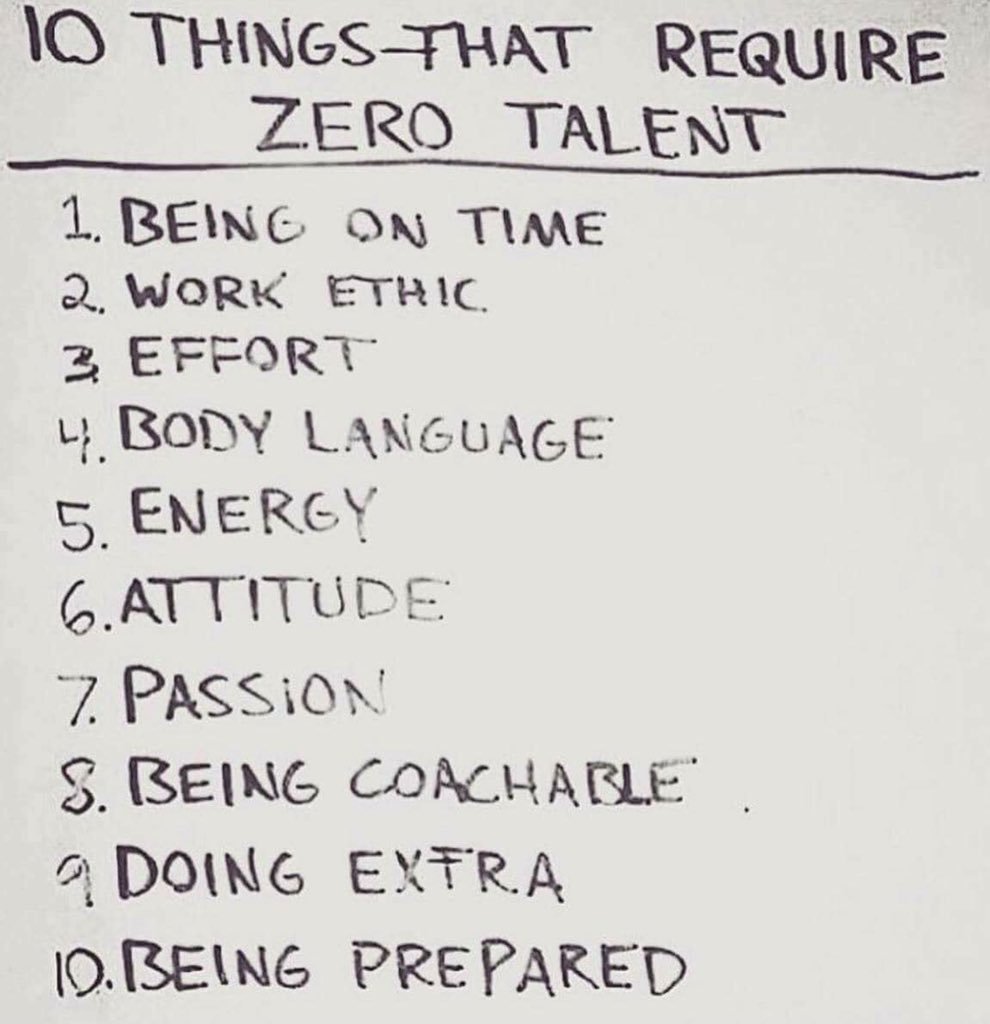
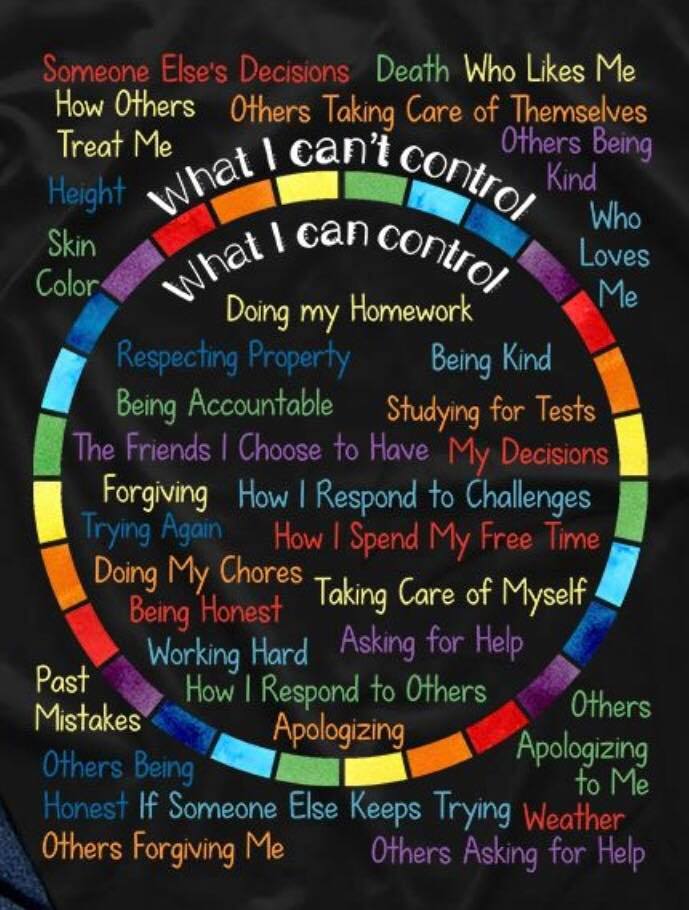
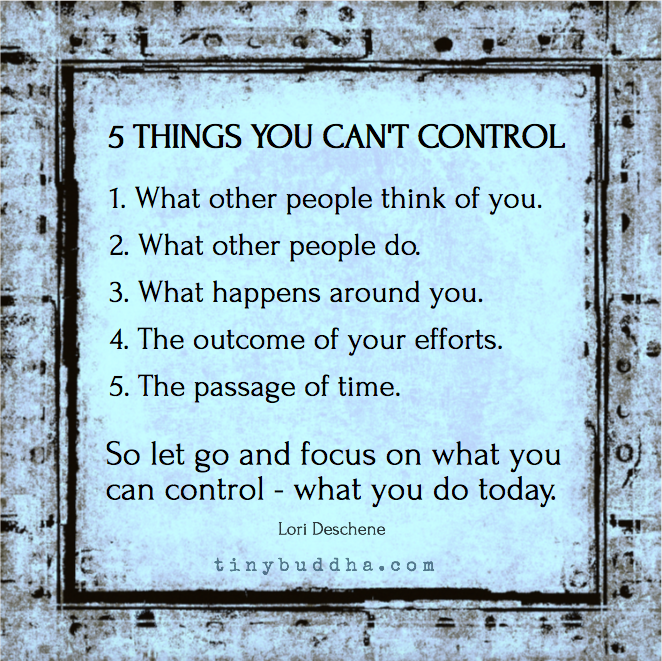
I feel it’s a little bit richer than that. In the article I say: your backdrop has everything you have ever said, you have ever resisted, you have ever said yes to, or no to. Of course some of those you said more often than others.
Look for “self-talk” that type with “unless I am… I won’t/can’t”
or “only people who … will ever…”
Your default backdrop needs to include your desire to be liked, your chirping talk when you want that, and your “only animals will… not humans”
Being simplistic will not allow you to own who you are being as a backdrop… and won’t allow you to have a life worth living.
I’m looking at what I think is my default backdrop: winning / losing. I guess that is what makes me feel attacked all the time. And that extends to when people say something about my son – I feel attacked instead of taking responsibility. Ugh, disgusting!